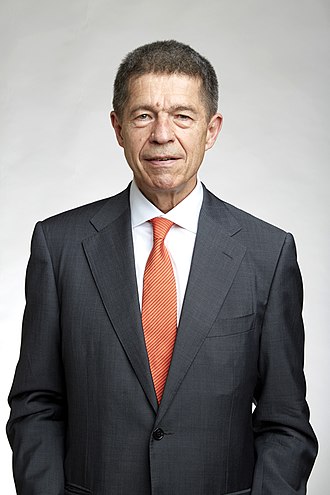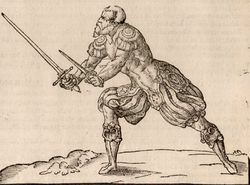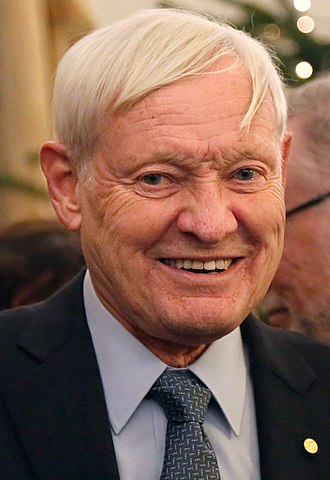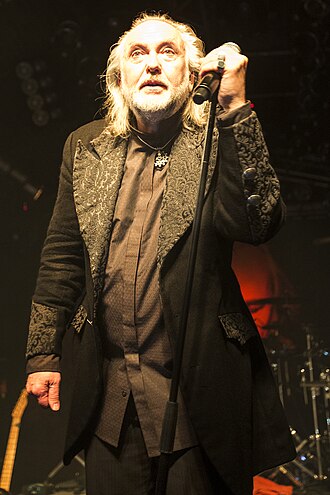Discover Your Roots
SIGN UPDiscover Your Roots
SIGN UPJoachim is a masculine given name of Hebrew origin, derived from the Hebrew Yehoyaqim, meaning "raised by Yahweh." It is primarily a male name and has a rich historical and religious significance. In the Bible, Joachim is associated with figures such as Jehoiakim, king of Judah, and Joachim, the father of Mary, the mother of Jesus. Throughout history, individuals bearing the name Joachim have made significant contributions in various fields, including theology, literature, politics, and the arts. The name has diverse language forms in different cultures and is also associated with several fictional characters. From biblical roots to modern-day usage, Joachim carries a deep and enduring meaning of being raised and guided by the divine.

Joachim Christian Andersen, born on May 31, 1996, is a Danish professional footballer known for his role as a centre back for Premier League club Fulham and the Denmark national team. Andersen's career began at Dutch club Twente before moving to Sampdoria in Italy and later to French club Lyon in 2019. He then had a loan spell at Fulham before signing permanently with Crystal Palace in 2021. Andersen's impressive career trajectory has also seen him represent Denmark at various international tournaments, including UEFA Euro 2020, the 2022 FIFA World Cup, and Euro 2024. Starting his football journey at a local club, Greve Fodbold, Andersen's talent was soon recognized, leading to moves to Copenhagen's academy and later Midtjylland. His professional career took off when he signed with FC Twente and later continued to excel at Sampdoria and Lyon before making a significant impact at Premier League clubs Fulham and Crystal Palace. Andersen's defensive prowess and contributions to both club and national teams have solidified his status as a talented and versatile footballer.

Joachim Sauer is a German quantum chemist and former professor of physical and theoretical chemistry at the Humboldt University of Berlin. He was born on April 19, 1949, in Hosena, Germany. Sauer's academic journey began at the Humboldt University, where he earned his doctorate in 1974. Throughout his career, he made significant contributions to quantum and computational chemistry, with a focus on catalysts and solid-state NMR spectroscopy. Sauer has been recognized with numerous awards and honors, including the prestigious Foreign Member of the Royal Society in 2018. He is also known for his personal life, being the husband of Angela Merkel, the former chancellor of Germany, and has two sons from a previous marriage. Despite his wife's prominent political career, Sauer has maintained a low profile and expressed a preference for focusing on his scientific work rather than media attention. His passion for Wagner's music and his dedication to his research have shaped his public image. Sauer's impact in the field of chemistry and his unique position as a scientist married to a prominent political figure have made him a subject of interest in both scientific and public spheres.

Joachim Meyer (ca. 1537–1571) was a renowned Freifechter, residing in the Free Imperial City of Strasbourg in the 16th century. His significant contribution to the world of martial arts is his comprehensive treatise titled Gründtliche Beschreibung der Kunst des Fechtens (Thorough Descriptions of the Art of Fencing), first published in 1570. This work is considered one of the most complete systems within medieval German martial arts. Meyer's book covers a wide array of weaponry, including the longsword, dussack, rapier, dagger, and polearms. It is heavily influenced by the German school of swordsmanship and also incorporates elements from contemporary Italian swordplay. Despite the emphasis on the longsword, Meyer's treatise provides detailed and systematic insights into various weapons and techniques, making it a valuable resource for martial arts enthusiasts. However, little is known about Meyer's personal life. Recent scholarship has shed light on some aspects of his life, revealing that he lived as a cutler and professional fencer in Strasbourg, and later served as a Master-of-Arms at the court of the Duke of Schwerin before his untimely demise. Meyer's enduring legacy continues to influence the world of fencing and martial arts, with his work remaining an influential source for subsequent German fencing books.

Joachim Frank, born on September 12, 1940, is a renowned German-American biophysicist based at Columbia University. In 2017, he was honored with the Nobel Prize in Chemistry for his pioneering work in single-particle cryo-electron microscopy (cryo-EM), a field he is credited with founding alongside Jacques Dubochet and Richard Henderson. Frank has also made significant strides in understanding the structure and function of the ribosome in bacteria and eukaryotes. His academic journey includes a Ph.D. from the Technical University of Munich and postdoctoral studies in the United States. He has held various research and teaching positions, including at the University at Albany, State University of New York, and as an investigator at the Howard Hughes Medical Institute. Frank's contributions have been recognized with numerous awards, including the Wiley Prize in Biomedical Sciences, the Benjamin Franklin Medal in Life Science, and the 2018 Honorary Doctorate from the University of Siegen, Germany. His publications, including books such as "Found in Translation," "Molecular Machines in Biology," and "Electron Tomography," have further solidified his impact in the scientific community. Joachim Frank's legacy continues to inspire and shape the field of biophysics and electron microscopy.

Joachim Witt, born on February 22, 1949, is a renowned German rock musician and actor. He gained fame as the guitarist and singer of the 1970s krautrock band Duesenberg, releasing three albums with them before pursuing a successful solo career. Witt emerged as a major star in the German pop scene during the 1980s with massive hits like "Goldener Reiter," solidifying his status in the "Neue Deutsche Welle" movement. His career experienced a resurgence in the late 1990s with the chart-topping duet "Die Flut" alongside Peter Heppner. Witt's musical collaborations extend to various artists, showcasing his versatility and influence in the industry. Notably, he has also ventured into remixing songs for other bands and contributing to theatrical plays. Throughout his career, Witt has released numerous albums, including the highly acclaimed "Bayreuth" trilogy and subsequent releases such as "DOM," "Neumond," and "Ich." With a rich discography and enduring legacy, Joachim Witt continues to be a prominent figure in the German music scene, captivating audiences with his distinctive sound and artistic evolution.
All images displayed on this page are sourced from Wikipedia or Wikimedia Commons.We use these images under their respective Creative Commons or public domain licenses. Wherever applicable, author attributions and license information are provided. If you believe an image is used incorrectly or outside its license terms, please contact us so that we can review and correct the issue.